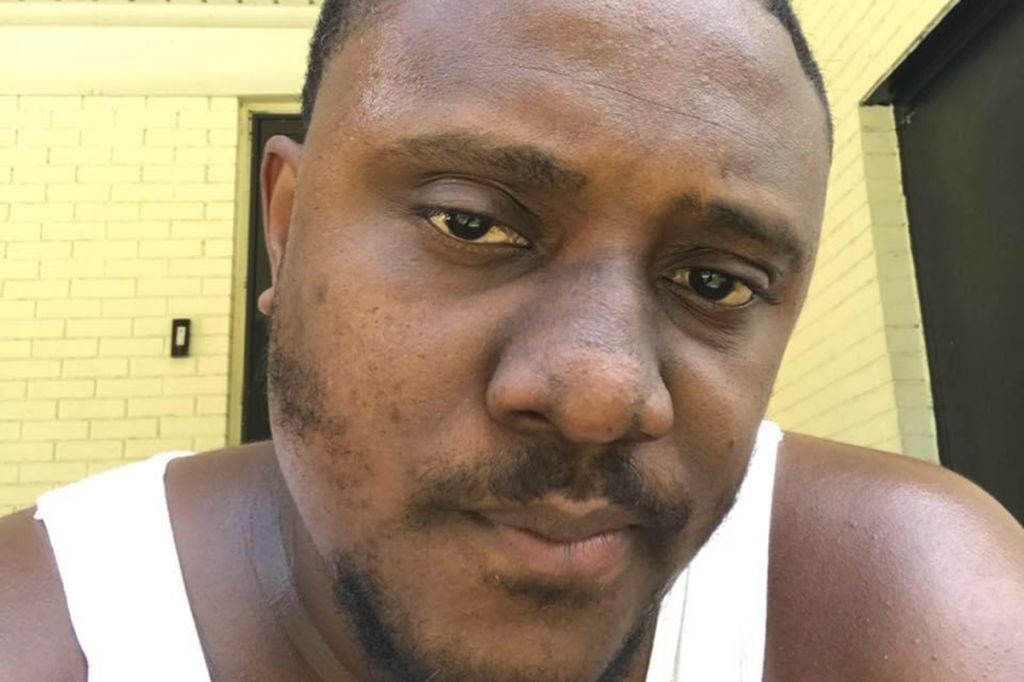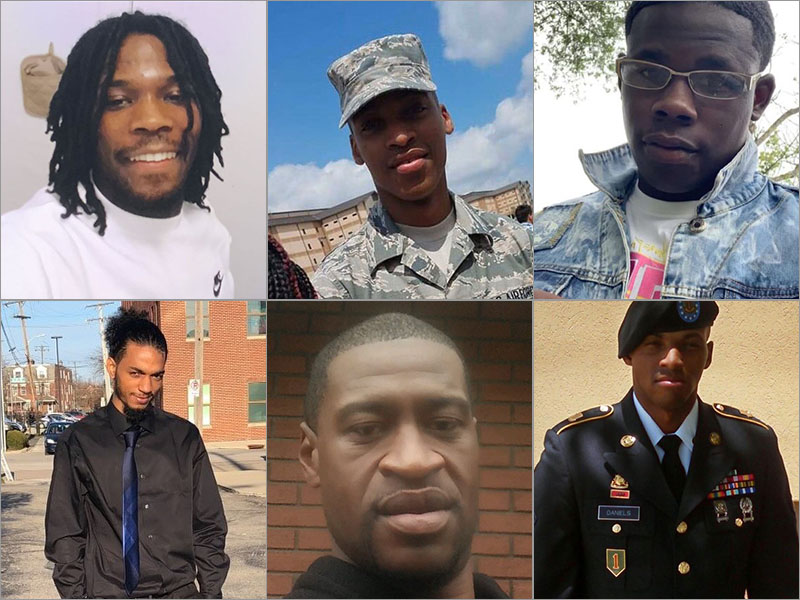Jason Walker Fayetteville Police Shooting Update: Charges Not Filed In NC
No Justice For Jason Walker: Off-Duty NC Cop Who Killed Black Man ‘Just Walking Home’ Isn’t Charged

Jason Walker. | Source: Twitter
A North Carolina prosecutor has declined to bring charges against an off-duty police officer for shooting and killing a Black man who was described by a witness as “just walking home” when he was shot in Fayetteville in January.
Kimberley Spahos, the director of the N.C. Conference of District Attorneys who served as a special prosecutor in the case, announced her decision Thursday and said Cumberland County Sheriff’s Deputy Jeffrey Hash was justified in his use of lethal force because he was defending himself against Jason Walker even though the contents of the officer’s 911 call suggest he was determined to use his gun one way or another.
The Fayetteville Observer reported that Spahos said her investigation determined that Walker, 37, jumped on Hash’s truck while it was being driven and ripped windshield wipers off before smashing the windshield, a narrative that matches the officer’s. Hash jumped out of his truck and shot Walker to death while the truck was still moving with his wife and child inside.
However, an eyewitness account from a trauma nurse who was on the scene contradicts much of those claims.
Civil rights attorney Ben Crump, who was retained to represent Walker’s family, blasted Spahos’ decision and described it as the latest instance of law enforcement being protected following a preventable police shooting.
“This case speaks to the need for reform of the North Carolina laws and their equivalents across the nation that allow unnecessary deadly force as a means of self-protection, which we often see loosely interpreted,” Crump said in a statement emailed to NewsOne following Spahos’ decision. “Laws like the one protecting Jeffrey Hash disproportionately justify killings of people of color; the parameters need to be strengthened to prevent the protection of people who are quick to pull the trigger and end a life.”
Hash said he felt he “just had to shoot” Walker, according to his 911 call.
“I just had a male jump on my vehicle and broke my windshield. I just shot him. I am a deputy sheriff,” Hash said on the 911 call before callously confirming Walker’s death to the dispatcher: “He’s gone.”
During the 911 call, an eyewitness named Elizabeth Ricks identified herself to Hash as a trauma nurse and began rendering aid to Walker, something that the off-duty officer never once attempted to do.
In a subsequent interview, Ricks said Walker was only trying to cross the street when he was shot.
She told the local news outlet 11 ABC that she saw Hash’s truck collide with Walker, whose “body was slammed onto the windshield.” Ricks said she saw Hash shoot through the windshield first before he shot Walker multiple times from outside of his truck.
When Rocks said she asked Hash, “What did you just do?” he identified himself as an officer and instructed her to keep moving. But she stayed to render aid to Walker and asked for materials like a towel to try to stop the bleeding. But “the officer wasn’t really paying attention to me” because he was on the phone, Ricks said.
Walker died as Ricks was attending to him, she said.
Ricks had previously said that she “did not see anyone in distress” when Hash shot Walker, whom she described as “just walking home.”
But Spahos said in her decision Thursday that Walker “lunged” at Hash, which she said gave the officer the right to defend himself with lethal force.
“In this case, the evidence clearly supports the conclusion that Hash reasonably believed that he, his wife, and his child were in imminent danger of great bodily injury or death at the hands of Walker,” Spahos said. “The shooting was indisputably tragic, but based upon these facts, the State of North Carolina will not be able to prove beyond a reasonable doubt that the shooting of Jason Walker was unlawful. Consequently, our office will not be seeking charges related to the death of Jason Walker.”
Crump rejected the decision and suggested Hash should have known better than to shoot Walker.
“Of all people to be able to properly deescalate a situation, a trained police officer like Hash should have been capable of knowing the implications of ending a life and all of the possible steps to avoid doing so,” Crump said.
Walker shooting came less than a week after a suspected white supremacist shot and killed a Black driver in an apparent fit of road rage, also in Fayetteville. In that case, Roger Dale Nobles — who did not have the privilege of being a police officer — was arrested and charged with the first-degree murder of 32-year-old Stephen Addison.
SEE ALSO:
















